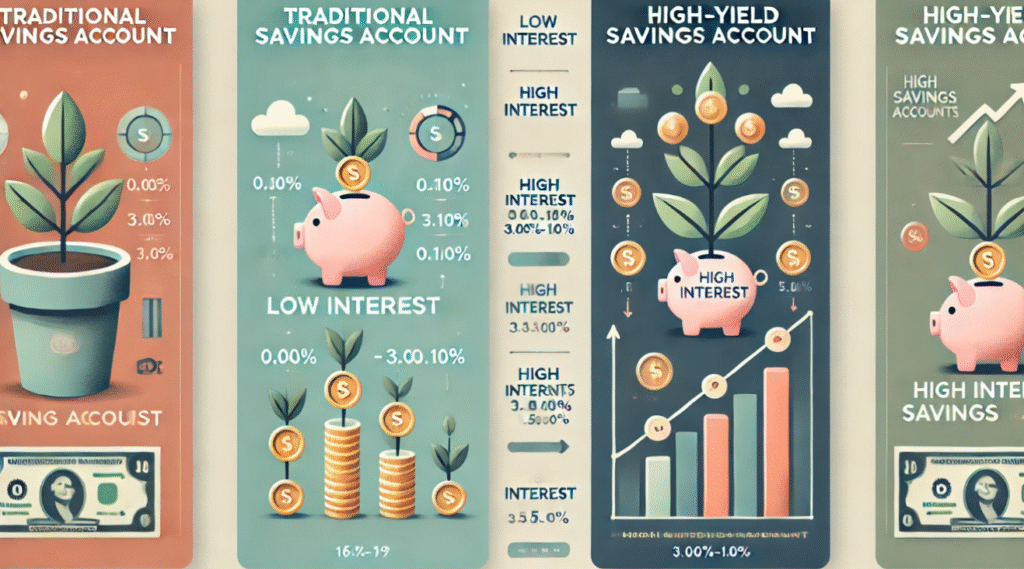
Frugal living is a lifestyle that focuses on making smart financial decisions to save money and live within your means. It involves being mindful of your spending, finding ways to cut costs, and prioritizing needs over wants. Frugality is important in today’s economy because it allows individuals to build savings, reduce debt, and prepare for unexpected expenses. It also promotes a more sustainable and mindful approach to consumption, which can help reduce financial stress and increase overall financial stability. The purpose of this article is to share beginner-friendly hacks to help people save more and spend less. These tips and tricks can help individuals start their frugal living journey and make positive changes to their financial habits.
What is Frugal Living?
Frugal living is the practice of being mindful and intentional with your spending in order to save money and live within your means. It involves making smart choices about where and how you allocate your resources, while still meeting your needs and prioritizing what is most important to you. It’s important to understand that being frugal is not the same as being cheap. Frugality focuses on getting the best value for your money and being intentional about your spending, while being cheap often involves sacrificing quality and value for the lowest price. Adopting a frugal lifestyle has numerous benefits, including achieving financial stability, reducing stress about money, and contributing to sustainability by consuming resources more mindfully.
Why Beginners Should Start with Small Changes
Starting slowly to build sustainable habits is important because it allows for gradual adjustment and increases the likelihood of long-term success. When it comes to financial habits, starting slow can help individuals avoid common beginner challenges such as the temptation to overspend and the lack of financial planning. By starting slow, individuals can focus on small, manageable changes that can be maintained over time. This approach can help to build a strong foundation for healthy financial habits, such as budgeting, saving, and avoiding impulse purchases. It also allows individuals to gradually increase their financial literacy and confidence in managing their money. Common beginner challenges, such as the temptation to overspend and the lack of financial planning, can be addressed by starting slow and taking small steps towards building sustainable habits.

Frugal Living Hacks for Beginners
Budget Like a Pro
Budgeting is an essential aspect of frugal living as it helps individuals manage their finances effectively and prioritize their spending. By creating and sticking to a budget, people can track their expenses, identify areas where they can cut costs, and save money for future goals. Tools such as budgeting apps like Mint, You Need a Budget (YNAB), or simple spreadsheets can help individuals keep track of their income and expenses, set financial goals, and stay on top of their budgeting efforts. These resources provide valuable insights into spending habits and offer personalized recommendations for better money management.

Master Meal Planning
Meal planning offers a range of benefits, including saving money and reducing food waste. By planning meals ahead of time, you can buy in bulk and take advantage of sales, ultimately saving you money. Additionally, by knowing exactly what you need, you can reduce food waste and use ingredients more efficiently. Some quick tips for mastering meal planning include batch cooking, buying in bulk, and avoiding pre-packaged foods, which can all contribute to a more cost-effective and sustainable approach to meal planning.

Shop Smart
Using coupons, cashback apps, and loyalty programs can help you save money on your purchases. Look for coupons in newspapers, online, or through the store’s app. Cashback apps offer rewards for making purchases at certain stores, and loyalty programs can earn you points or discounts for frequent shopping. To avoid impulse purchases, make a list before you go shopping and stick to it. Try to avoid browsing in areas where you are likely to make impulse buys, and consider waiting 24 hours before making a purchase to see if you really need it. By using these strategies, you can shop smart and save money.

Reduce Utility Costs
Reducing utility costs can be achieved through energy-saving habits such as using LED bulbs and unplugging devices when they are not in use. Additionally, practicing water conservation tips such as fixing leaks and using water-saving fixtures can also help lower utility expenses. These small changes can add up to significant savings over time.

Embrace DIY Culture
Certainly! DIY culture is all about taking matters into your own hands and embracing the satisfaction of creating something yourself. For beginners, some simple projects could include making your own non-toxic cleaning products using ingredients like vinegar and baking soda, tackling small home repairs such as fixing a leaky faucet or replacing a broken tile, and creating personalized gifts like handmade candles or custom picture frames. These projects not only save money but also allow you to put your personal touch on your home and gifts. So go ahead and give DIY a try!

Cut Entertainment Costs
There are several ways to cut entertainment costs without sacrificing fun. Instead of expensive outings, consider attending free community events or taking advantage of resources at your local library. Additionally, consider switching from cable TV to streaming services, which can often be more cost-effective while still providing access to a wide range of entertainment options. Making these changes can help you save money without giving up on enjoying entertainment.

Declutter and Sell Unused Items
Decluttering your space can lead to mental clarity and a sense of peace. It can also help you make some extra money by selling items you no longer need or use. Platforms like eBay, Facebook Marketplace, or local consignment shops are great options for selling your unused items. By decluttering and selling unused items, you can create a more organized and peaceful living environment while also making some extra cash.

Save on Transportation
To save on transportation costs, consider using public transportation, carpooling with colleagues or friends, or biking for shorter trips. These options can save you money on gas and parking fees, as well as reduce wear and tear on your vehicle. Additionally, to extend your car’s life and save money on maintenance, be sure to keep up with regular oil changes, tire rotations, and other recommended maintenance tasks. Keeping your car clean, avoiding harsh driving habits, and addressing any issues promptly can also help prevent costly repairs down the line.

Avoid Lifestyle Inflation
It’s important to recognize and resist the urge to spend more when earning more. Instead, focus on long-term financial goals rather than short-term indulgences. By prioritizing saving and investing, you can set yourself up for greater financial security in the future. It’s important to stay disciplined and avoid lifestyle inflation, so you can make the most of your increased earnings and work towards achieving your long-term financial objectives.

Learn to Negotiate
1.Negotiating is an important skill that can help you save money on bills, subscriptions, and services. Here are some tips for negotiating better deals:
- Do your research: Before you start negotiating, make sure you understand the market rates for the services you are negotiating for. This will give you a better idea of what a good deal looks like.
- Be prepared to walk away: Sometimes the best way to get a good deal is to be willing to walk away if the terms aren’t in your favor. This can give you leverage in the negotiation process.
- Be polite and respectful: It’s important to approach negotiations with a positive and respectful attitude.

Building a Frugal Mindset
It’s important to celebrate small wins to stay motivated and avoid comparing yourself to others. By focusing on your own progress and achievements, you can maintain a positive mindset and continue moving forward. Instead of feeling discouraged by comparing yourself to others, take the time to acknowledge and celebrate your own accomplishments, no matter how small they may seem. This can help you stay motivated and focused on your own journey, rather than getting caught up in comparing yourself to others.

The Long-Term Benefits of Frugal Living
Frugal living offers a multitude of long-term benefits that can positively impact your financial well-being. By adopting a frugal lifestyle, individuals can effectively work towards achieving their financial goals, such as reducing debt and increasing savings. Through careful budgeting and spending habits, frugal living allows individuals to allocate more funds towards paying off debts and building up their savings, ultimately bringing them closer to financial freedom. Additionally, frugal living can lead to a sense of personal freedom and reduced financial stress. By living within one’s means and prioritizing needs over wants, individuals can experience a greater sense of control over their finances and a reduced reliance on credit.

Conclusion
It’s important to start small with frugal living because making small changes can add up to big savings over time. By starting with one small frugal habit, such as bringing your own lunch to work or cutting back on online shopping, you can begin to build a foundation for a more frugal lifestyle. I encourage you to take the first step today and apply at least one frugal hack to your daily routine. Whether it’s brewing your own coffee at home instead of buying it from a coffee shop or setting a budget for entertainment expenses, every small change can make a difference. Once you’ve started implementing frugal habits into your life, I challenge you to share a frugal hack with friends or family to spread the mindset.













